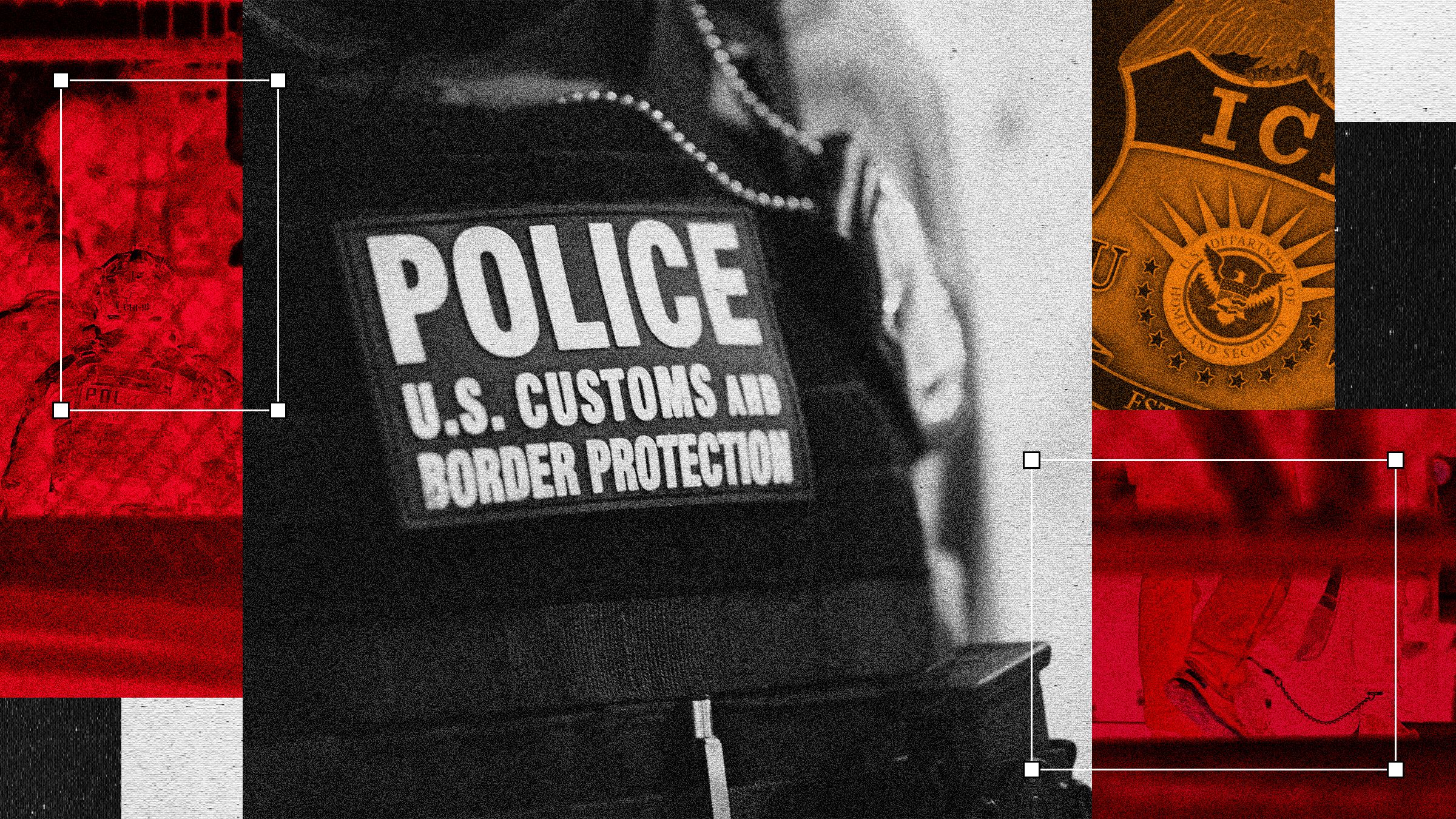For years, Customs and Border Protection agents have been quietly harvesting DNA from American citizens, including minors, and funneling the samples into an FBI crime database, government data shows. This expansion of genetic surveillance was never authorized by Congress for citizens, children, or civil detainees.
According to newly released government data analyzed by Georgetown Law’s Center on Privacy & Technology, the Department of Homeland Security, which oversees CBP, collected the DNA of nearly 2,000 US citizens between 2020 and 2024 and had it sent to CODIS, the FBI’s nationwide system for policing investigations. An estimated 95 were minors, some as young as 14. The entries also include travelers never charged with a crime and dozens of cases where agents left the “charges” field blank. In other files, officers invoked civil penalties as justification for swabs that federal law reserves for criminal arrests.
The findings appear to point to a program running outside the bounds of statute or oversight, experts say, with CBP officers exercising broad discretion to capture genetic material from Americans and have it funneled into a law-enforcement database designed in part for convicted offenders. Critics warn that anyone added to the database could endure heightened scrutiny by US law enforcement for life.
“Those spreadsheets tell a chilling story,” Stevie Glaberson, director of research and advocacy at Georgetown’s Center on Privacy & Technology, tells WIRED. “They show DNA taken from people as young as 4 and as old as 93—and, as our new analysis found, they also show CBP flagrantly violating the law by taking DNA from citizens without justification.”
DHS did not respond to a request for comment.
For more than two decades, the FBI’s Combined DNA Index System, or CODIS, has been billed as a tool for violent crime investigations. But under both recent policy changes and the Trump administration’s immigration agenda, the system has become a catchall repository for genetic material collected far outside the criminal justice system.
One of the sharpest revelations came from DHS data released earlier this year showing that CBP and Immigrations and Customs Enforcement have been systematically funneling cheek swabs from immigrants—and, in many cases, US citizens—into CODIS. What was once a program aimed at convicted offenders now sweeps in children at the border, families questioned at airports, and people held on civil—not criminal—grounds. WIRED previously reported that DNA from minors as young as 4 had ended up in the FBI’s database, alongside elderly people in their nineties, with little indication of how or why the samples were taken.
The scale is staggering. According to Georgetown researchers, DHS has contributed roughly 2.6 million profiles to CODIS since 2020—far above earlier projections and a surge that has reshaped the database. By December 2024, CODIS’s “detainee” index contained over 2.3 million profiles; by April 2025, the figure had already climbed to more than 2.6 million. Nearly all of these samples—97 percent—were collected under civil, not criminal, authority. At the current pace, according to Georgetown Law’s estimates, which are based on DHS projections, Homeland Security files alone could account for one-third of CODIS by 2034.
The expansion has been driven by specific legal and bureaucratic levers. Foremost was an April 2020 Justice Department rule that revoked a long-standing waiver allowing DHS to skip DNA collection from immigration detainees, effectively green-lighting mass sampling. Later that summer, the FBI signed off on rules that let police booking stations run arrestee cheek swabs through Rapid DNA machines—automated devices that can spit out CODIS-ready profiles in under two hours.
The strain of the changes became apparent in subsequent years. Former FBI director Christopher Wray warned during Senate testimony in 2023 that the flood of DNA samples from DHS threatened to overwhelm the bureau’s systems. The 2020 rule change, he said, had pushed the FBI from a historic average of a few thousand monthly submissions to 92,000 per month—over 10 times its traditional intake. The surge, he cautioned, had created a backlog of roughly 650,000 unprocessed kits, raising the risk that people detained by DHS could be released before DNA checks produced investigative leads.
Under Trump’s renewed executive order on border enforcement, signed in January 2025, DHS agencies were instructed to deploy “any available technologies” to verify family ties and identity, a directive that explicitly covers genetic testing. This month, federal officials announced they were soliciting new bids to install Rapid DNA at local booking facilities around the country, with combined awards of up to $3 million available.
“The Department of Homeland Security has been piloting a secret DNA collection program of American citizens since 2020. Now, the training wheels have come off,” said Anthony Enriquez, vice president of advocacy at Robert F. Kennedy Human Rights. “In 2025, Congress handed DHS a $178 billion check, making it the nation’s costliest law enforcement agency, even as the president gutted its civil rights watchdogs and the Supreme Court repeatedly signed off on unconstitutional tactics.”
Oversight bodies and lawmakers have raised alarms about the program. As early as 2021, the DHS Inspector General found the department lacked central oversight of DNA collection and that years of noncompliance can undermine public safety—echoing an earlier rebuke from the Office of Special Counsel, which called CBP’s failures an “unacceptable dereliction.”
US senator Ron Wyden more recently pressed DHS and DOJ for explanations about why children’s DNA is being captured and whether CODIS has any mechanism to reject improperly obtained samples, saying the program was never intended to collect and permanently retain the DNA of all noncitizens, warning the children are likely to be “treated by law enforcement as suspects for every investigation of every future crime, indefinitely.”
Rights advocates allege that CBP’s DNA collection program has morphed into a sweeping genetic surveillance regime, with samples from migrants and even US citizens fed into criminal databases absent transparency, legal safeguards, or limits on retention. Georgetown’s privacy center points out that once DHS creates and uploads a CODIS profile, the government retains the physical DNA sample indefinitely, with no procedure to revisit or remove profiles when the legality of the detention is in doubt.
In parallel, Georgetown and allied groups have sued DHS over its refusal to fully release records about the program, highlighting how little the public knows about how DNA is being used, stored, or shared once it enters CODIS.
Taken together, these revelations may suggest a quiet repurposing of CODIS. A system long described as a forensic breakthrough is being remade into a surveillance archive—sweeping up immigrants, travelers, and US citizens alike, with few checks on the agents deciding whose DNA ends up in the federal government’s most intimate database.
“There’s much we still don’t know about DHS’s DNA collection activities,” Georgetown’s Glaberson says. “We’ve had to sue the agencies just to get them to do their statutory duty, and even then they’ve flouted court orders. The public has a right to know what its government is up to, and we’ll keep fighting to bring this program into the light.”




